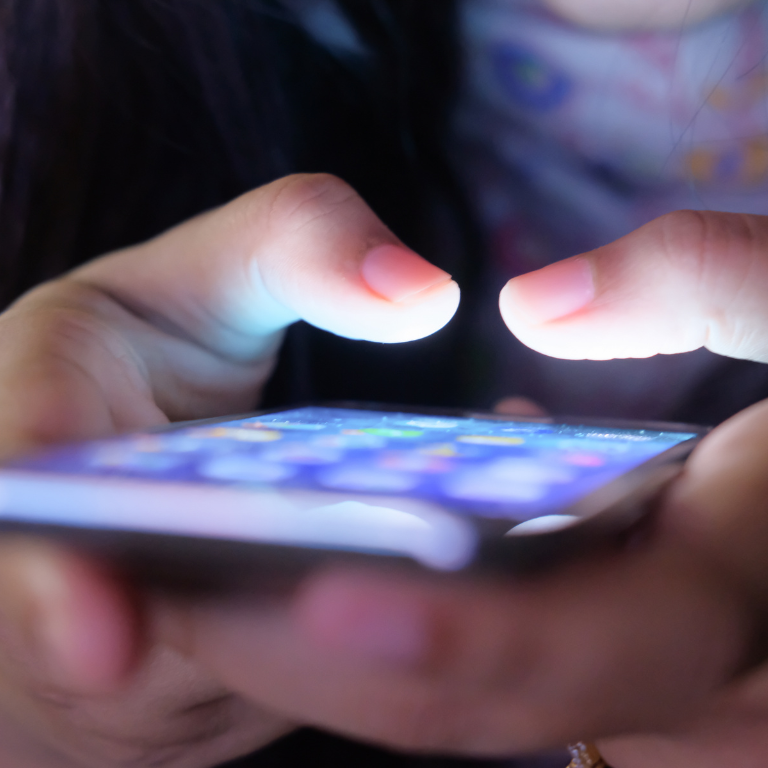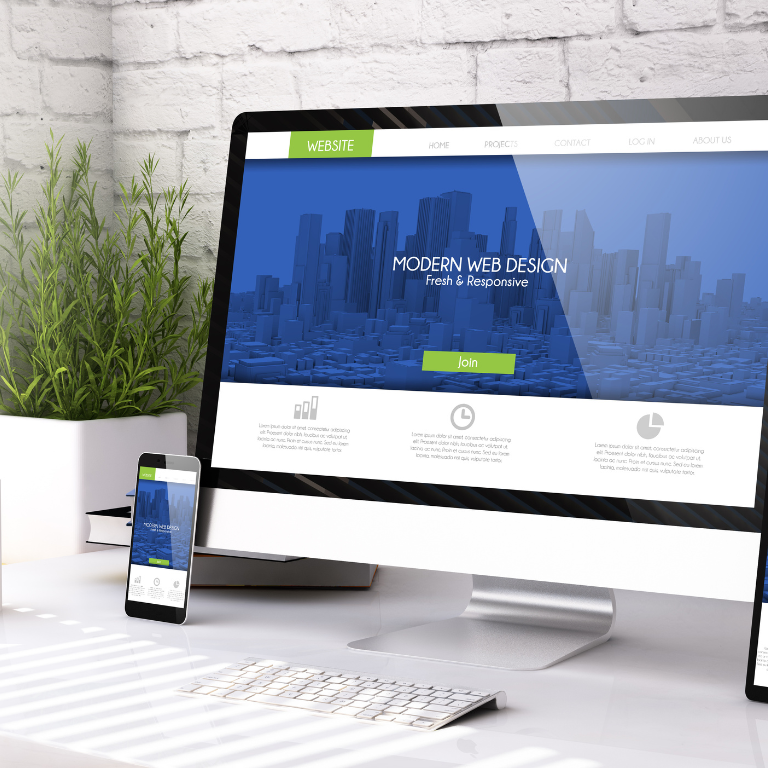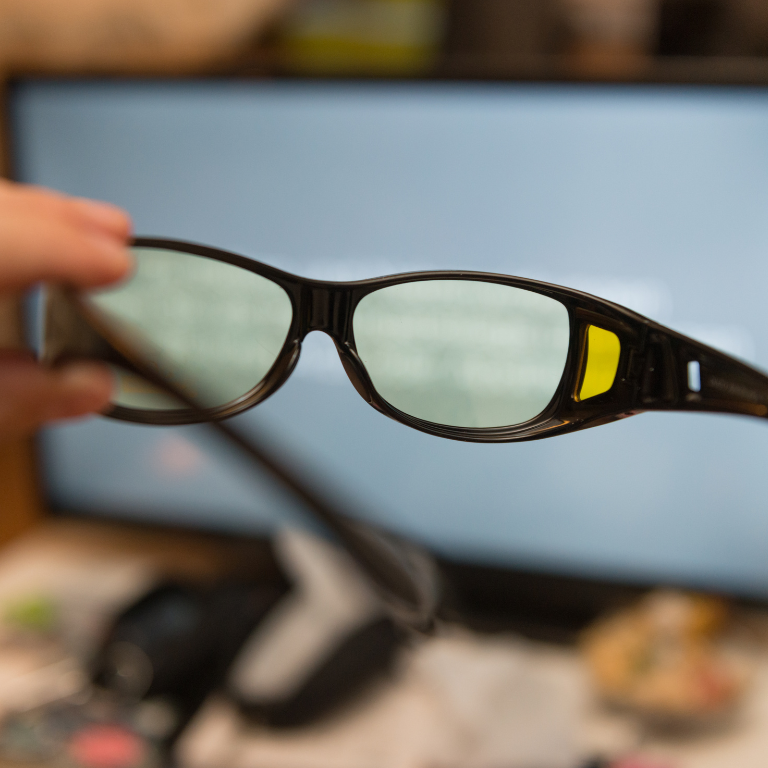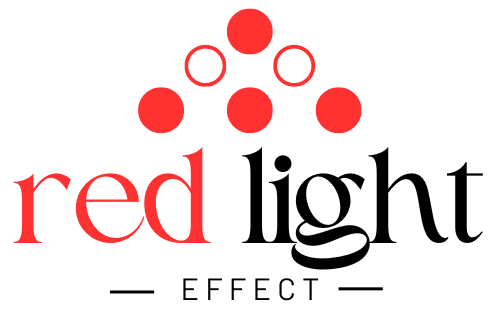Blue Light Can Effect Sleeplessness
Circadian Rhythm
Blue light can effect our internal clock called the circadian rhythm, which regulates our sleep-wake cycle. This clock is influenced by light, particularly blue light. Exposure to this light during the day can improve mood and alertness, but exposure to this light at night can disrupt our circadian rhythm, leading to sleep problems.

Sleep Disruption
Blue light exposure at night suppresses the production of melatonin, a hormone that helps us sleep. This can lead to difficulty falling asleep, staying asleep, and feeling rested in the morning. In fact, studies have shown that exposure to blue light before bed can delay the onset of sleep by up to two hours.
To avoid the negative effects of blue light on sleep, experts recommend avoiding electronic devices for at least an hour before bed. If that’s not possible, using blue light-blocking glasses or a blue light filter on your devices can help reduce exposure.
How Blue Light Affects Eye Damage
In addition to its effects on sleep, this type of light can also cause eye damage. The eyes are not very good at blocking blue light, so prolonged exposure can lead to damage to the retina. This damage can contribute to age-related macular degeneration, a leading cause of blindness. Blue light exposure can also cause eye strain, headaches, and dry eyes.
How to Reduce the Impact of Blue Light
There are several ways to reduce the impact of this particular light on sleeplessness and eye damage. One of the most effective ways is to limit exposure to electronic devices before bedtime. This can involve setting a specific time to stop using devices, or even turning them off completely several hours before bed. Another way to reduce exposure to it is to use filters or specialized glasses that block the light.

Many electronic devices now include settings that reduce blue light emission, often called “night mode”. These settings reduce the amount of blue light emitted by the device and can be adjusted to suit individual preferences. It’s also important to ensure that the bedroom is conducive to sleep by keeping it cool, quiet, and dark.
Practicing Good Eye Hygiene
In addition to these measures, it’s important to practice good eye hygiene to reduce the risk of eye damage. This can include taking regular breaks from electronic devices, using lubricating eye drops, and adjusting the lighting in the room to reduce glare. It’s recommended to have regular eye exams to check for any signs of eye damage or other eye conditions.

The Importance of Limiting Exposure to Electronic Devices
Limiting exposure to electronic devices before bedtime is crucial to reducing the impact of blue light on sleeplessness and eye damage. The light emitted by electronic devices can interfere with our body’s natural sleep rhythms, making it difficult to fall asleep and stay asleep. By setting a specific time to stop using devices or turning them off completely several hours before bed, we can help regulate our circadian rhythm and improve our sleep quality.
Using Filters or Specialized Glasses
Another effective way to reduce exposure to this light is to use filters or specialized glasses that block blue light. These filters can be applied to the screen of electronic devices or used as glasses. They work by reducing the amount of blue light emitted by the device or blocking it altogether. By using these filters or glasses, we can reduce the impact of this light on our eyes and improve our sleep quality.

Adjusting Device Settings
Many electronic devices now include settings that reduce blue light emission, often called “night mode”. These settings are adjustable to reduce the amount of blue light emitted by the device. They can be customized to suit individual preferences. By using these settings, we can reduce our exposure to this harmful light and improve our sleep quality.
Practicing Good Eye Hygiene
Practicing good eye hygiene is also important to reduce the risk of eye damage from blue light exposure. Taking regular breaks from electronic devices can help reduce eye strain and dry eyes. Using lubricating eye drops can also help keep the eyes moist and comfortable. Adjusting the lighting in the room to reduce glare can also help reduce eye strain and discomfort. It’s recommended to have regular eye exams to check for any signs of eye damage or other eye conditions.
In conclusion, blue light can have a significant impact on sleeplessness and eye damage. Exposure to this kind of light can disrupt our body’s natural sleep rhythms and lead to poor sleep quality, while prolonged exposure can cause eye damage and discomfort. However, by limiting exposure to electronic devices before bedtime, using filters or specialized glasses, adjusting device settings, and practicing good eye hygiene, we can reduce the impact of blue light on our health and improve our sleep quality. By taking these steps, we can help protect our eyes and get a good night’s sleep.



